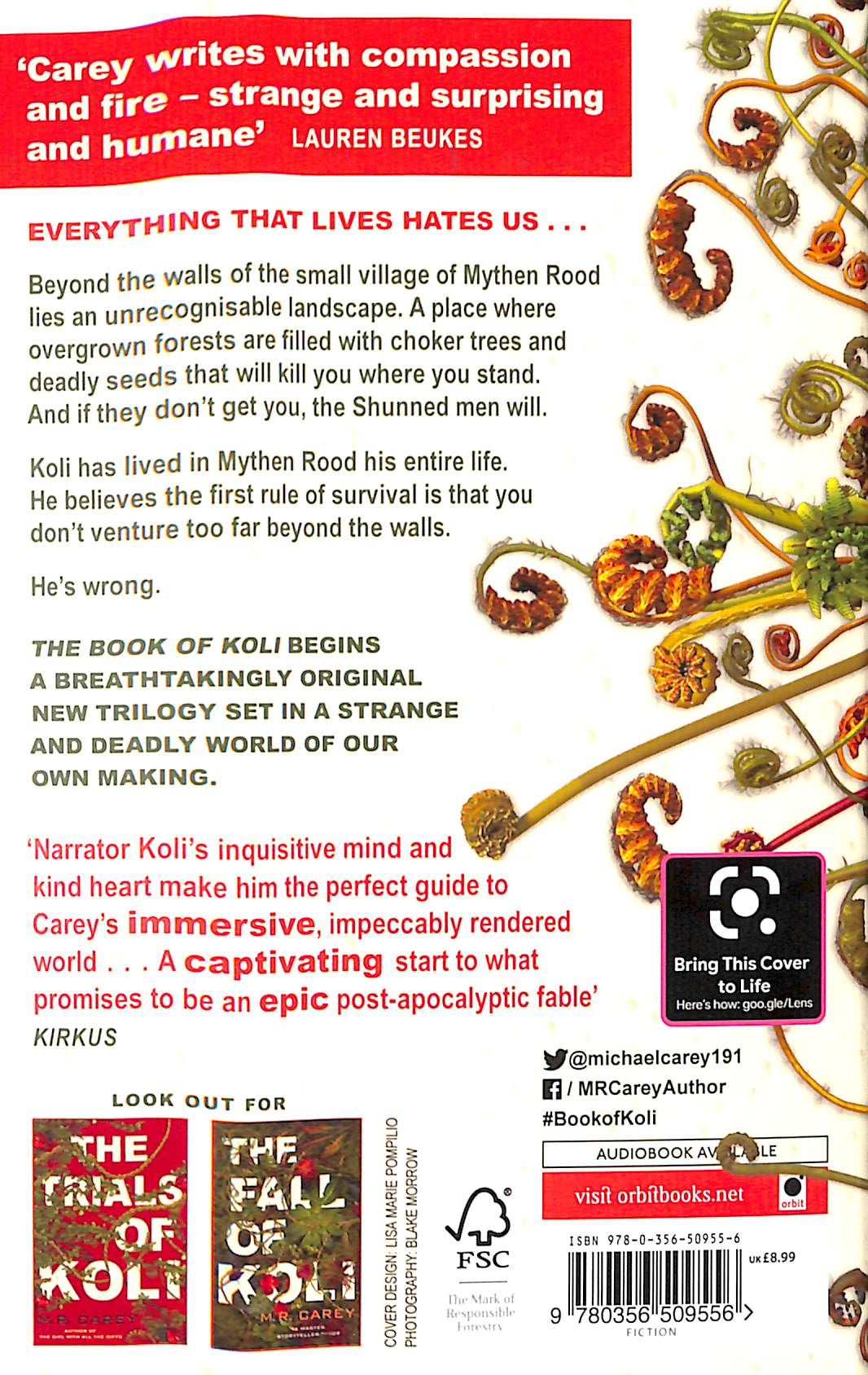

In the trilogy’s first volume, The Book of Koli, Koli was cast out of his village for stealing forbidden technology: an artifact that turned out to be an advanced music player with an AI who, with Koli’s blessing, traveled the ruins of the internet to bootstrap itself to self-awareness. The Fall of Koli, third and final volume of the trilogy, brings Koli and his companions back full circle to his home of Mythen Rood, from which he was exiled in the first volume, and wraps up an epic journey with closure, loss, and-ironically-heavy notes of technological utopianism. Yet the journey of Koli, Carey’s protagonist throughout all three novels, quickly became one of hope, with a cast of characters it was easy to fall in love with.


As I mentioned in my review of the first volume, I definitely didn’t think another post-apocalyptic science fiction series was what I wanted when I started reading it. Carey’s Rampart Trilogy, the third volume of which was published March 2021. Which makes it slightly awkward that I keep recommending that people read M. I can’t do apocalypses, soft or otherwise, right now. A decade later, with a pandemic raging, terrifying heat in Canada, and record-breaking flooding in Europe and China, Soft Apocalypse feels even closer to home. I had read one of McIntosh’s stories from the novel’s universe years before in Daily Science Fiction and was still haunted by it. I picked it up and read the back cover, surprised to find it between surplus copies of Danielle Steele and David McCullough. The other day, masked and browsing used books at a local antique mall, I ran across a copy of Will McIntosh’s Soft Apocalypse, a 2011 novel about a frighteningly prosaic and believable fraying of society.


 0 kommentar(er)
0 kommentar(er)
